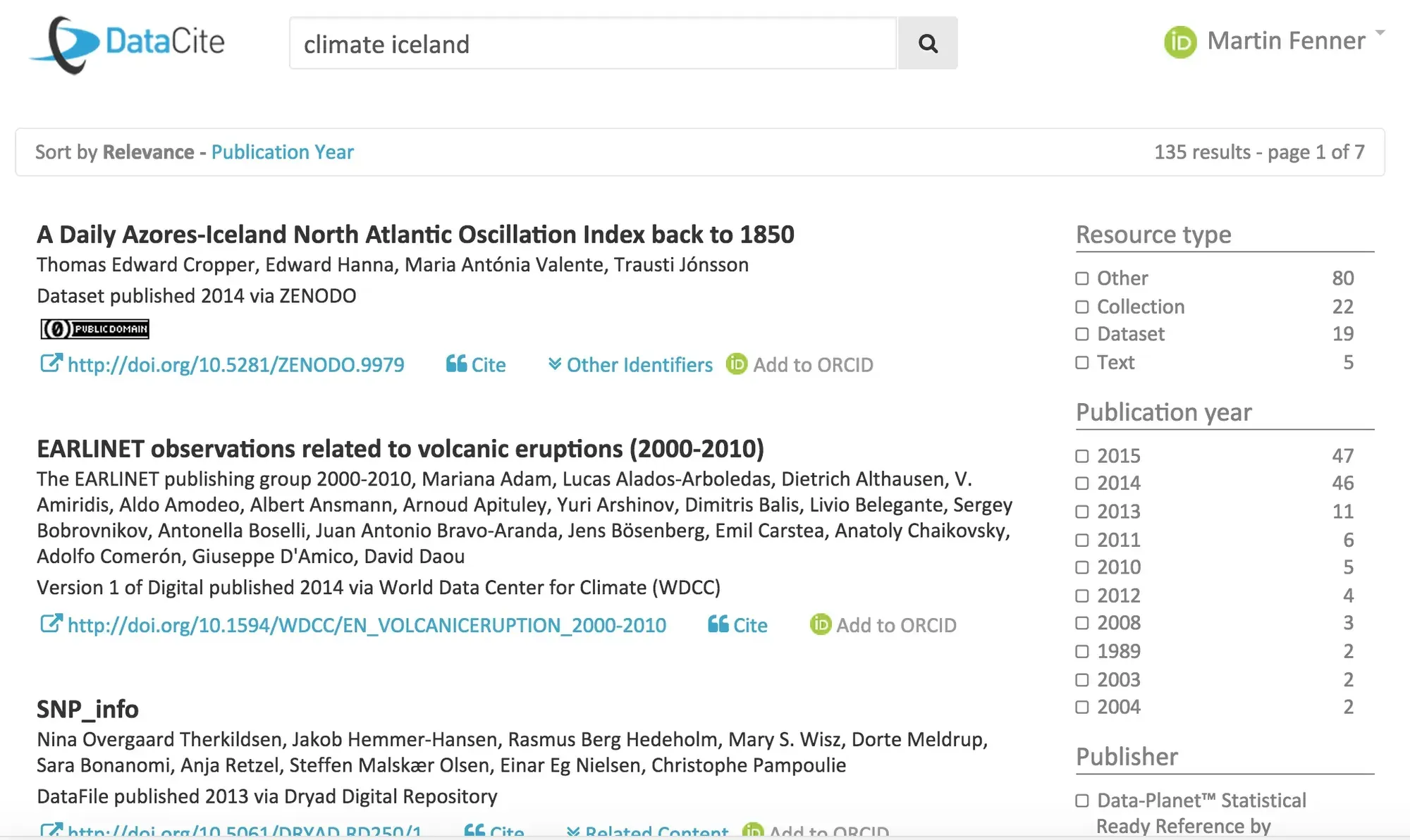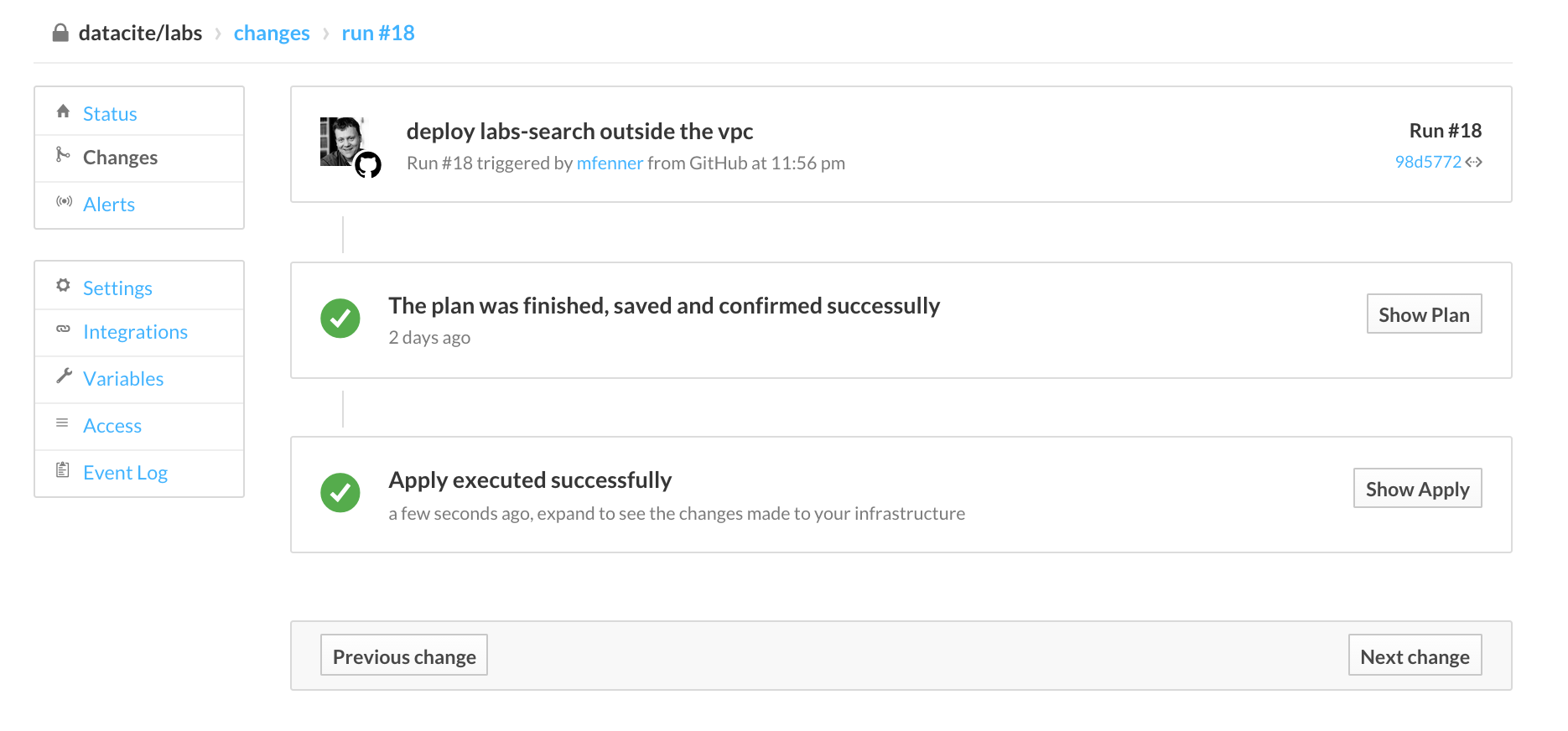CSV (comma-separated values) is a popular file format for data. It is popular because it is very simple: CSV is text-based and any application that can open text files can read or write CSV. This makes it a good fit for digital preservation. We don't know how many of the datasets in DataCite use CSV because the format metadata attribute is not used much (this query gives you some examples), but we know that the number is big.

In the first post of this new blog a few weeks ago I talked about Data-Driven Development, and that service monitoring is an important aspect of this. The main service DataCite is providing is registration of digital object identifiers (DOIs) for scholarly content, in particular research data.

Today I am pleased to announce the launch of a new service, DataCite Labs Search – the service is available immediately at https://search.datacite.org/. This is one of THOR’s first services and is based on work in the earlier EC-funded ODIN Project. The ODIN project launched the DataCite/ORCID claiming tool in June 2013. The DataCite/ORCID claiming tool allows users to add works from the DataCite Metadata Store (MDS) to their ORCID profile.

Today DataCite received an email from a user alerting us that there are some small inconsistencies with our recommended data citation format: Creator (PublicationYear): Title. Publisher. Identifier at https://www.datacite.org/services/cite-your-data.html Creator; (PublicationYear): Title; Publisher.

This week I start as the new DataCite Technical Director. While I get up to speed with existing DataCite services and infrastructure, and we start to launch new services (e.g. this blog), this is also a good time to communicate the overall approach I am taking. I like to call it Data-Driven Development, or DDD as we all love acronyms.

Starting next week I will work as the DataCite Technical Director, and I am excited about this new opportunity. But this is material for another post, here I want to reflect on the last three years working as Technical Lead for the PLOS Article-Level Metrics project.
Four years ago I wrote a blog post about component DOIs. It is time to revisit the topic, in particular since our approach to citing data associated with a publication has changed since 2011. Component DOIs are explained in the CrossRef Help System: DOIs may be assigned to items that are part of a journal article, book chapter, or any other content item.

At the SciFoo Camp this weekend Erin McKiernan and I moderated an unconference session on the topic Why should we work where we live?
Just like the rest of the internet, much of our scholarly infrastructure is built around the Hypertext Transfer Protocol (HTTP), increasingly HTTPS for security, and soon HTTP/2 for better performance. In this infrastructure Universal Resource Locators (URLs) are essential to locate resources (sic) such as scholarly articles, datasets, researchers, organizations, or grants.
Yesterday Julie McMurry and co-authors published a preprint 10 Simple rules for design, provision, and reuse of persistent identifiers for life science data. This is an important paper trying to address a fundamental problem: how can we make persistent identifiers both human-readable and machine-readable?
Using Markdown to author scholarly documents is an attractive alternative to the standard authoring tools Microsoft Word and LaTeX. The feeling shared by many is that Scholarly Markdown is 80% there, and that more effort is needed for the remaining 20% - moving markdown from a niche into the mainstream.